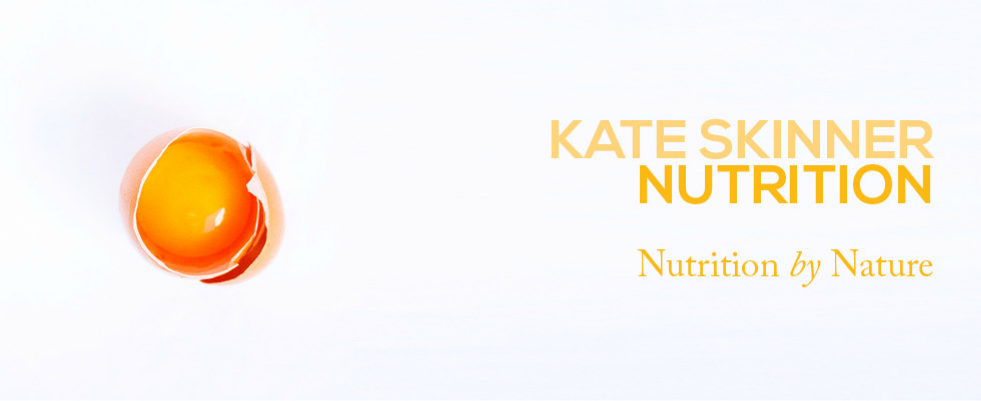This one’s not just for the fellas. Ladies, soy will also upset your sexual hormones, contribute to weight gain, bloating, gas, painful, heavy menstrual cycles and throw your mood out of whack. But let me start at the beginning…
Soy contains substances called goitrogens that affect the thyroid gland by slowing the action of the thyroid and leading to symptoms of hypothyroidism: weight gain, lethargy, constipation and fatigue. Soy also contains lots of enzyme inhibitors and antinutrients (such as phytic acid) that interfere with the human digestive system and can block the absorption of minerals including magnesium, calcium, iron and zinc, leading to mineral deficiencies in those who consume lots of soy. Most disturbingly, natural phytoestrogens (oestrogen-like compounds) that occur in soy act hormonally as the plant’s natural pesticide, causing insects to become sterile. And not just insects… A European study published in Human Reproduction Journal demonstrated that the intake of soy foods significantly reduces sperm count in men. In fact, Buddhist monks originally started eating tofu to reduce their sex drive… (I imagine some sweetly-muscled lads may just be backing away in horror from their giant containers of soy protein powder and stashes of protein bars at this point).
But those skinny, long-living Japanese eat soy… Therefore, soy = healthy, no?
Here it’s important to note the differences between traditional and modern soy foods, as well as the differences in how they are consumed. The many naturally-occurring toxins in soybeans can be reduced or eliminated by long, slow fermentation methods (although this won’t affect the phytoestrogens in soy) (NOTE: fermentation, however, does not reduce the anti-thyroid goitrogens in soy - it actually increases them). In Asia, traditional, fermented soy foods were consumed in small amounts, usually as condiments such as miso, soy sauce, tempeh and natto. The soy industry’s own figures show that soy consumption in China, Indonesia, Korea, Japan and Taiwan ranges from only 10-90 grams of soy food per day (a cup of tofu or soy milk is 250g). Small amounts of tofu were usually eaten with egg yolks and/or bone broth, which provided lots of compensating minerals and compounds that help support thyroid function and reduce the anti-nutrient effect of soy. The process of making soy milk was a long and arduous one.
Many modern food products today are made with soy protein isolate (SPI), which is the powdered protein extracted from the waste product of industrially-produced soybean oil. In fact, SPI was first used as a binder in cardboard boxes, and has never actually been granted “Generally Recognized as Safe” (GRAS) status by the Food and Drug Administration (FDA). It was rejected as a food additive on the basis that it contained high levels of a toxin called lysinoalanine.
Yet… and this is where it gets frightening… SPI is the primary ingredient of soy infant formulas and now is a part of many, many food products innocently sitting on our supermarket shelves and sold to billions of people.
In 1992, the Swiss Health Service estimated that consuming the equivalent of 2 cups of soy milk, or 1 cup cooked mature soybeans, provides the estrogenic equivalent of a contraceptive pill. This figure is for adults, meaning that for a baby that weighs only 6kg or so, 1/10th of this amount provides the same estrogenic equivalent per body weight. Thus, the average amount of soy-based formula taken in by a child provides the estrogenic equivalent of at least 4 birth control pills. Scary stuff.
Keep in mind that tofu and soy milk aren’t the only soy products on the market. In fact, almost all processed food has soy in it, in the form of soy oil, lecithin, soy flour or SPI. It’s in our bread, our cereals, cookies, cakes, sausages, hamburger patties, convenience meals, corn chips, mayonnaise, salad dressings and protein powders. Our chickens are fed soy so mainstream poultry is also full of the stuff. It’s hard to avoid.
For those avoiding cow's milk, there are other alternatives apart from soy. I’d suggest trying coconut milk as a non-dairy option, or goat’s milk. Some people who are allergic to dairy can tolerate goat’s milk and goat’s cheese products without issue.
Go easy on the soy products by choosing whole, natural foods that won’t have soy added to them. If you’re going to consume soy, do so in extreme moderation... but I'd recommend avoiding it altogether.
I highly recommend reading The Whole Soy Story, by Kaayla Daniel, PhD, CCN. Or, for a quick run-down on the dangers of soy, click here.
But those skinny, long-living Japanese eat soy… Therefore, soy = healthy, no?
Here it’s important to note the differences between traditional and modern soy foods, as well as the differences in how they are consumed. The many naturally-occurring toxins in soybeans can be reduced or eliminated by long, slow fermentation methods (although this won’t affect the phytoestrogens in soy) (NOTE: fermentation, however, does not reduce the anti-thyroid goitrogens in soy - it actually increases them). In Asia, traditional, fermented soy foods were consumed in small amounts, usually as condiments such as miso, soy sauce, tempeh and natto. The soy industry’s own figures show that soy consumption in China, Indonesia, Korea, Japan and Taiwan ranges from only 10-90 grams of soy food per day (a cup of tofu or soy milk is 250g). Small amounts of tofu were usually eaten with egg yolks and/or bone broth, which provided lots of compensating minerals and compounds that help support thyroid function and reduce the anti-nutrient effect of soy. The process of making soy milk was a long and arduous one.
Many modern food products today are made with soy protein isolate (SPI), which is the powdered protein extracted from the waste product of industrially-produced soybean oil. In fact, SPI was first used as a binder in cardboard boxes, and has never actually been granted “Generally Recognized as Safe” (GRAS) status by the Food and Drug Administration (FDA). It was rejected as a food additive on the basis that it contained high levels of a toxin called lysinoalanine.
Yet… and this is where it gets frightening… SPI is the primary ingredient of soy infant formulas and now is a part of many, many food products innocently sitting on our supermarket shelves and sold to billions of people.
In 1992, the Swiss Health Service estimated that consuming the equivalent of 2 cups of soy milk, or 1 cup cooked mature soybeans, provides the estrogenic equivalent of a contraceptive pill. This figure is for adults, meaning that for a baby that weighs only 6kg or so, 1/10th of this amount provides the same estrogenic equivalent per body weight. Thus, the average amount of soy-based formula taken in by a child provides the estrogenic equivalent of at least 4 birth control pills. Scary stuff.
Keep in mind that tofu and soy milk aren’t the only soy products on the market. In fact, almost all processed food has soy in it, in the form of soy oil, lecithin, soy flour or SPI. It’s in our bread, our cereals, cookies, cakes, sausages, hamburger patties, convenience meals, corn chips, mayonnaise, salad dressings and protein powders. Our chickens are fed soy so mainstream poultry is also full of the stuff. It’s hard to avoid.
For those avoiding cow's milk, there are other alternatives apart from soy. I’d suggest trying coconut milk as a non-dairy option, or goat’s milk. Some people who are allergic to dairy can tolerate goat’s milk and goat’s cheese products without issue.
Go easy on the soy products by choosing whole, natural foods that won’t have soy added to them. If you’re going to consume soy, do so in extreme moderation... but I'd recommend avoiding it altogether.
I highly recommend reading The Whole Soy Story, by Kaayla Daniel, PhD, CCN. Or, for a quick run-down on the dangers of soy, click here.

